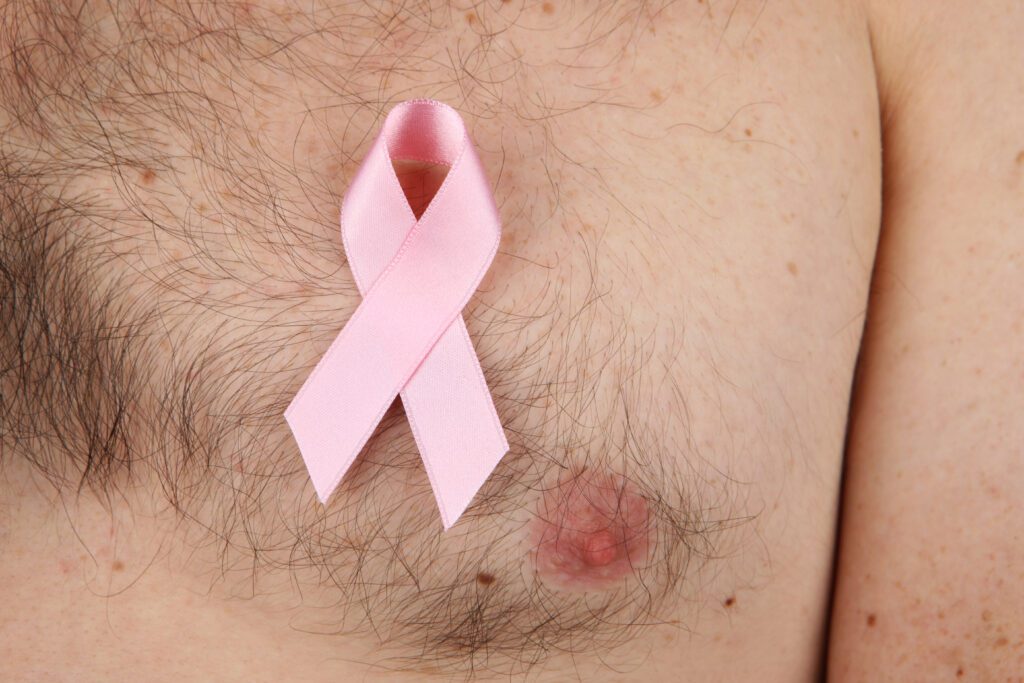While men may not be the first ones to come to mind when you think of breast cancer awareness, they can still develop it. Central Florida Health News spoke with Winter Haven Hospital oncologist Dr. Hassan Ebrahim to learn more about breast cancer in men.
Health News: What percent of breast cancer occurs in men?
Ebrahim: Breast cancer is rare in men. It represents between 0.5% and 1% of all breast cancer diagnosed each year.
HN: Why is it less common for men to develop breast cancer?
Ebrahim: There are cancers that are predominant in men and others in women. Breast cancer is predominantly a female cancer. Many reasons may lead to that; some known and some unknown. Men have a small amount of breast tissue, women have more estrogen and genetic differences.
HN: What symptoms do men experience?
Ebrahim: Men with breast cancer generally present with a painless, firm mass usually behind the nipple. The left breast is slightly involved more than the right. This could be associated with skin changes including nipple retraction, ulceration, or fixation of the mass to the skin. The axillary lymph node might also be enlarged.
HN: Is the severity of the disease the same as it is for women?
Ebrahim: Breast cancer in men shares the same characteristic as in women. However, there is a slight difference in some of the biology of the cancer. Also, male breast cancer seems to be diagnosed at a slightly later stage because of a lack of awareness. This makes the prognosis of breast cancer in men slightly worse than in women.
HN: Men typically aren’t the focus of campaigns promoting self-exams. Do you think this contributes to later detection?
Ebrahim: It could be. There is a lack of awareness of male breast cancer. A man may note something growing in his breast, but he ignores it because he is not aware of the possibility of the development of breast cancer. However, it might be challenging to campaign for breast cancer awareness in men because of its rarity and cost-effectiveness.
HN: Are there any differences in the way it is treated in men and women?
Ebrahim: Not much. Curative surgery is the mainstay of treatment for early stages of breast cancer in both genders. We offer hormone therapy for men as postmenopausal women. More men than women may require chemotherapy because they present at later stages.
HN: What factors put a man at a higher risk?
Ebrahim: Genetic and family history such as BRCA1/2 mutations in addition to other genetic mutations, hereditary disorders such as Klinefelter syndrome, increased estrogen as in individuals with testicular disorders such as undescended testes and liver disease.
HN: Is there anything you’d like to add?
Ebrahim: We should be aware that breast cancer exists in men. A man should seek medical advice if he notes a breast mass. However, gynecomastia, which is an enlargement of male breast tissue, may mimic a breast mass. Gynecomastia may be caused by medications, increased estrogen, decreased testosterone, liver disease, and others.
